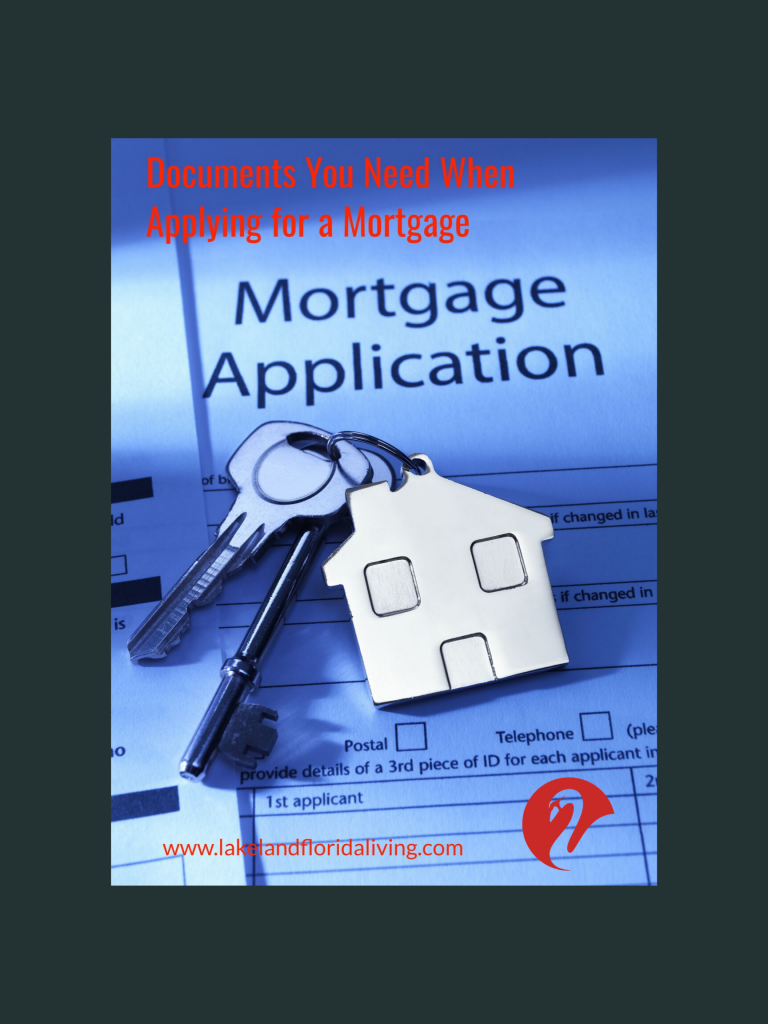Are you ready to buy a home? I’ll bet you’re pretty excited…right?
But wait…not so fast.
You’ll need to try your best not to put the cart before the horse.
While buying a new home is exciting, it’s also a long journey that’s going to require your active participation if you want to sail through the mortgage process and get the best possible interest rate.
OK?

Buying a home is one of the most exciting things you will do in your lifetime; however, you will need to get your financial house in order before packing to move into your new one. And the best way to do that is to learn some home-buying basics and about the mortgage process, as well as the documents you will need to have in order if you want your loan to be approved.
OK!
So let’s go over the documents and some of the other things you will need for mortgage approval. Below we are going to cover the most common loan options available, as well as a few other helpful programs that might be beneficial to you.
Are you ready?
Let the journey begin!
What You Will Need for a Conventional Mortgage
A conventional mortgage is one that is not guaranteed or insured by a government agency such as is the case with a Federal Housing Administration (FHA) or a Department of Veterans Affairs (VA) loan. And a conventional mortgage usually has a fixed rate and term.

Here is what you will need when you apply for a conventional mortgage.
➣ Lending Requirements for a Conventional Mortgage
- A FICO score of at least 620.
- A 5%-20% down payment (in most cases). You will need to put down at least 20% if you want to avoid paying PMI.
- You need to have an acceptable debt-to-income ratio.
- Have a loan amount that is higher than the FHA loan limit.
➣ Documents Needed to Apply for a Conventional Mortgage
- Current and previous W-2s for each applicant.
- Pay stubs for each applicant.
- Bank statements for each applicant if you don’t have a joint account.
- A gift letter if you were gifted your down payment.
- A list of all your current debts and assets.
- If you rent, you will need proof that you paid your rent on time.
- Credit reports for each applicant.
- Your profit and loss statements if you are self-employed.
- Proof of any additional income you might have.
- A copy of the sales contract signed by all parties.
- A copy of your divorce decree if applicable.
- A copy of your bankruptcy paperwork if applicable.
What You Will Need for an FHA Mortgage
An FHA mortgage is one that’s insured by the US Federal Housing Administration and approved by an FHA-approved lender. This type of loan typically allows lower-income Americans to put a lower down payment and borrow money to buy a home they would not otherwise be able to afford.
➣ Lending Requirements for an FHA Mortgage
- A FICO score of no less than 580 to be eligible for a 3.5% down payment.
- A FICO score that is between 500 and 579 to qualify for a 10% down payment.
- A Mortgage Insurance Premium (MIP) is required.
- Your debt-to-income ratio must be less than 43%.
- The home must be owner-occupied and your primary residence.
- You must have proof of employment and a steady income.
➣ Documents Needed to Apply for an FHA Mortgage
- Completed tax returns for the last two years. And if you are self-employed, you will need to provide three years of tax returns and a YTD profit and loss statement.
- W-2s, 1099s, or other income statements for the last two years for each applicant.
- Your most recent pay stubs for each applicant.
- Three months of bank, retirement, stock, and/or mutual fund statements.
- Your most recent credit reports for each applicant. If you don’t have any credit, you will need to provide copies of your most recent utility bills.
- If you rent, you will need to provide your landlord’s contact information so your rental history can be verified.
- Bankruptcy and discharge papers if applicable.
- A copy of a driver’s license for each applicant.
- A copy of a social security card for each applicant.
- Your green card or work permit if applicable.
What You Will Need for a VA Mortgage
A VA mortgage is a loan that is guaranteed by the United States Department of Veterans Affairs (VA). The purpose of a VA loan is to provide home financing to eligible veterans and to help them obtain that financing without a down payment.

➣ Eligibility Requirements for a VA Mortgage
To be eligible for a VA loan, you must meet one or more of the following requirements.
- You must have served at least 90 consecutive days in active duty during wartime.
- You must have served at least 181 days in active duty during peacetime.
- You must have more than 6 years of military service, either in the National Guard or Reserves.
- You are the spouse of a service member who died in the line of duty or died of a service-related disability.
➣ Lending Requirements for a VA Mortgage
- There are no set income requirements.
- You must be able to prove that you have a stable, reliable income that covers your monthly expenses including your new mortgage payment.
- You are required to maintain a specified amount of income (residual income) that is left over each month after you’ve paid your major monthly expenses. This excess is expected to pay for your daily requirements such as food, transportation, etc. The VA enforces residual income requirements as a way of keeping their foreclosure rates low.
➣ Documents Needed to Apply for a VA Mortgage
- You will need a Certificate of Eligibility.
- A Form 26-1880 which is a request for a COE.
- A Form DD-214.
- A Form 28-8937 which is only for Service-Connected Disability Benefits.
- A signed purchase contract.
- Your most recent full month of pay stubs.
- Your two most recent W-2s or tax returns if you are self-employed.
- A copy of your cashed earnest money check or the like.
- Proof of the source where your earnest money deposit came from.
- The contact information for your homeowner’s insurance.
- Your government-issued ID.
What You Will Need for a USDA Mortgage
A USDA mortgage is a home loan that is provided by the USDA loan program, which is called the USDA Rural Development Guaranteed Housing Loan Program. This type of mortgage is one that is offered to rural property owners and is backed by the U.S. Department of Agriculture. These loans are also referred to as a “Section 502” loan.
The purpose of these loans is to provide loan options to home buyers with a low-to-average income for their area. They offer 100% financing and have a reduced mortgage insurance premium requirement, as well as below-market mortgage rates. And, fortunately, about 97% of the geographic United States is in USDA loan-eligible territory. You can go to the U.S. Department of Agriculture’s website which lists eligible USDA communities by census tract. Additionally, these loans can be obtained by first-time homebuyers and repeat homebuyers alike.
➣ Lending Requirements for a USDA Mortgage
These are the minimum qualifications for a USDA loan, there could be more depending on your particular lender.
- You must have U.S. citizenship or be a permanent resident.
- You need a credit score of at least 640. If you have a credit score below 640, you might still be eligible, but you will be subject to manual underwriting which means there are more stringent guidelines to qualify.
- You must be able to prove you have a stable and dependable income.
- You will need proof of creditworthiness, which is generally 12 months of no late payments, no collections, positive repayment patterns, credit utilization, length of credit history, etc.
- Your adjusted household income must be equal to or less than 115% of the area median income where you live.
- The home must be your primary residence and located in a qualified rural area.
- The home must have direct access to a road, street, or driveway.
- The property must have what is considered adequate utilities, water, and wastewater disposal.
➣ Documents Needed to Apply for a USDA Mortgage
- A copy of your State issued photo ID card and social security card for each applicant.
- Your last two years of W-2s.
- Your award letter for social security, pension, or retirement accounts if applicable.
- The 1099 forms for the last two years for social security, pension, or retirement if applicable.
- Your divorce decree or child support agreement if applicable.
- One month of your most recent consecutive pay stubs for each applicant.
- Your two most recent years’ tax returns.
- Asset statements for the last two months for your checking, savings, 401k, IRA, and any other assets you might have.
- A copy of your cashed earnest money check or the like.
- Your homeowner’s insurance quote with your agent’s contact information.
- The termite inspection from a licensed termite inspector.
- A copy of your well water bacteria and chemical water tests that meet FHA/HUD guidelines if applicable.
- A copy of your septic system certification from a licensed septic certification company if applicable.
What Are the Requirements When Buying a New Construction Home?
The requirements for mortgage approval on a new construction home are pretty much the same as buying any other home. However, there are a few differences when it comes to the lender. Most of the medium to large new home builders usually have their own mortgage companies or a relationship with an outside mortgage company. This gives the builder an advantage because they can turn around and offer their buyers a whole host of different financing options.
Generally, using builders financing will give you additional sales incentives and price breaks on upgrades, as well as reduce the time it takes to process a home loan application from start to finish. And, it might also give the buyer a slight advantage when it comes to getting an approval. However, a builder’s interest rates, fees, and a variety of loan options might not be the best in the marketplace. Therefore, you should consider shopping around and talking with different lenders so you have the information you need to weigh your options and find the lender that best suits your particular needs.
What You Need for a Mortgage If You’re Self Employed
There’s a bit more of a burden when you’re self-employed and trying to buy a home. The mortgage process requires lots of documentation and mounds of paperwork. You will have to supply the lender with the following.
- Two years of personal and business tax returns to show you have a steady income.
- A list of your assets and liabilities.
- A profit and loss statement, 1099, and a signed letter from your current accountant that confirms you are still in business (if you’re a business owner).
- Schedule Cs, K-1s, and two months of bank statements.
- W-2 forms from your business if you provide yourself a salary.
Other than the above differences, self-employed home buyers go through the same process that any other borrower goes through.
What About Good Neighborhood Programs?
What is a good neighborhood program anyway? A good neighborhood program is a program offered by HUD and it’s called the Good Neighbor Next Door Sales Program. This program was designed to help sell homes to qualified purchasers in a revitalization area by offering them a 50% discount off the list price of any home that is in the HUD inventory. However, the purchaser must agree to live in that home for three years and it must be their primary residence. Additionally, you must currently be or have previously been in one of the following professions to qualify.
- Law enforcement
- Firefighter
- EMT (emergency medical technician)
- Teacher (pre-Kindergarten through 12th grade)
Of course, there is some fine print that comes along with the benefit of participating in this program. So make sure you read everything thoroughly.
What Is the Keystone Challenge Fund?
The Keystone Challenge Fund was established in 1991 in Lakeland, Florida. It is a non-profit organization that provides affordable housing services to the residents of Florida. This program helps with funds for your down payment and closing costs. It also offers HUD-certified education information for homeowners, as well as a sustainable housing development.
The Keystone Challenge Fund is available to very low, low and moderate income households who will be purchasing a home that will be used as their primary residence in Polk County. The associated programs are administered for Polk County, the City of Lakeland, and the City of Winter Haven. The income limits are broken down by household size and the other factors that determine if you’re qualified are as follows.
- Total borrower income
- Co-borrower if applicable
- Determine total debt
- Credit score
The information you will need to provide to the program administrators is quite lengthy but well worth the effort. Ask your real estate agent for guidance and consider reading over the Keystone Challenge Fund GAP Program Booklet to determine if this program is right for you.
Please keep in mind though that funding through this program is sometimes limited and other times not available at all. But don’t let that stop you from inquiring.
What’s Next?
Are you looking for a new home or would like more information about how the mortgage or home buying process works? Contact Us
Additional Resources About Mortgage and Home Buying!
- Basic FHA Loan Guidelines – FHA Lenders outlined key points that you need to know.
- What is a VA Loan? A Veterans Guide to Homeownership – These benefits, over at maxrealestateexposure.com, can make it quite a bit easier to purchase a home by removing some of the most significant roadblocks that buyers typically encounter.
- Why Do Real Estate Agents for a Pre-Approval – Saving time for one. Find out why this is a common practice of top real estate agents before you get upset when a real estate agent requests a pre-approval letter before showing you homes over at rochesterrealestateblog.com
- FHA Underwriting Guidelines That Every Buyer Should Know – maddisonmortgageguys.com explains in greater detail
on what it takes to get your loan approved.
____________________________________________________________________________________________________
About the author: The above real estate article “What Documents Are Needed When Applying for a Mortgage?” was written by Petra Norris of Lakeland Real Estate Group, Inc. With over 20 years of combined experience of selling or buying, we would love to share our knowledge and expertise. Petra can be reached via email at petra@petranorris.com or by phone at 863-712-4207